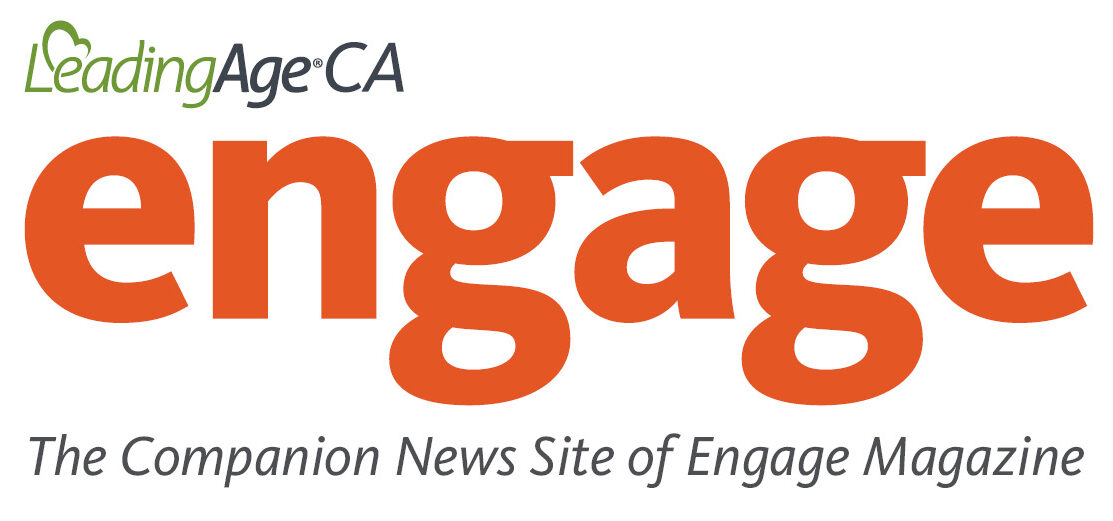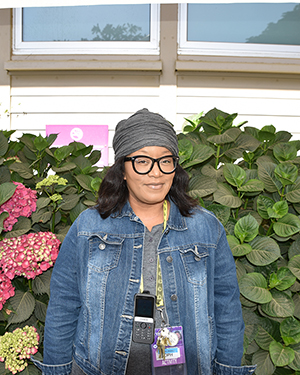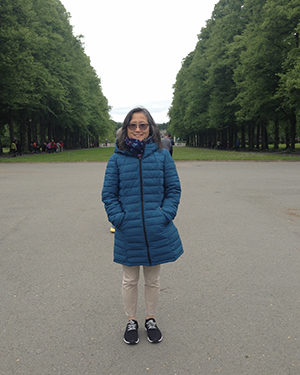We chatted with Rita Ng, Social Worker and Victoria Milburn, Activity Therapist at Laguna Honda Hospital and Rehabilitation Center in San Francisco, Calif. about some of the key ways day-to-day “work life” has changed since COVID-19 and how residents and staff have adapted.
What’s been the biggest adjustment/change to your day-to-day routine?
Victoria: The biggest adjustment and/or change to my day-to-day life has been balancing both work and family obligations during the current COVID-19 period.
Rita: The biggest adjustment is being very alert and sensitive to my environment. I am always conscious of having maintaining social distance and wearing the proper PPE.
Has your job affected the way you social distance around others?
Victoria: Social distancing has impacted every aspect of my social interactions with others. My personal “bubble” consists of only my immediate family. My social interactions among colleagues is also very limited. I miss “connecting” with people but I am trying to adapt and become better at initiating alternate methods of communication.
Rita: One significant challenge has been communicating with our residents, especially the ones with hearing impairments or cognitive impairments. Residents sometimes do not recognize my face due to the mask or asked me to repeat my name. I learned that I have to slow down the process of the interview and use a clear voice and clear language.
How has the pandemic affected the culture within the community, and how are the residents responding?
Victoria: The pandemic has affected residents differently within the Laguna Honda Hospital community. In my observation, some residents have been deeply distressed and/or saddened with changes affecting visitation, group gatherings, and hospital events/activities. Some residents are content to continue with individual or preferred solitude within the community. As well, there are some residents that adapt with each change and they continue to engage in daily life and happenings with a resilience that is remarkable.
Rita: I am a social worker for our Asian language unit. My residents usually have family members visit often. Family members show respect and concern by visiting their loved ones in the facility and by bringing food or snacks during visiting hours, particularly on birthdays or holidays.
Alert residents gradually seem to have accepted the current situation by accepting telephone calls and video visits instead of direct person-to-person visit. They watch the news and see what is happening outside of Laguna Honda and even though they find life during the pandemic challenging, they feel safe and are understanding.
Have any new programs, practices or activities been created within your community to replace those you can no longer do?
Victoria: Currently, my program planning and structure is individually focused and accommodating of small groups with regard to activities and resident engagement. This continues to be a great opportunity to build rapport and meaningful interpersonal relationships with the resident population. Large group activities are definitely of the past as COVID-19 precautionary measures continue.
Rita: One unexpected part of the pandemic is that the Asian language unit has welcomed more non-Asian language speakers due to the need for more bed movement. Our bingo night now included more translations and it’s a treat to see how much other residents enjoy living on the Asian language unit.
How have staff and resident attitudes toward the pandemic and stay at home orders changed over the course of the pandemic? Has this made it easier or harder to enforce safety measures?
Victoria: I believe attitudes toward the pandemic shift in a wave of emotion and precaution. I see that individuals are diligent and cautious for a period of time, to the point of exhaustion. Alternately, some individuals become comfortable, develop feelings of deprivation and are then, less cautious. Enforcing safety presents some challenge within the community.





